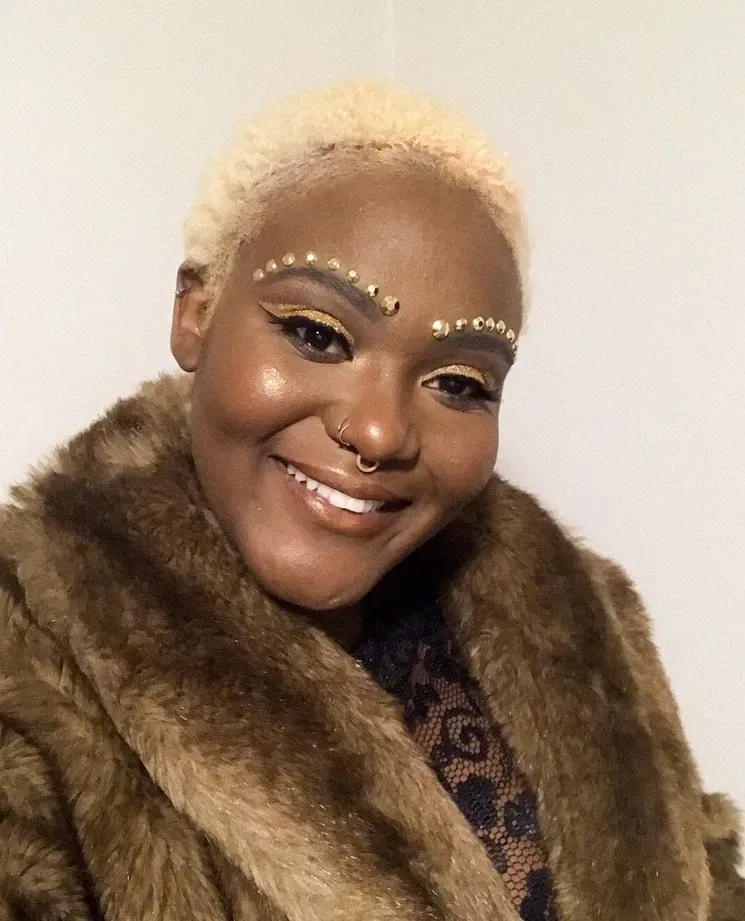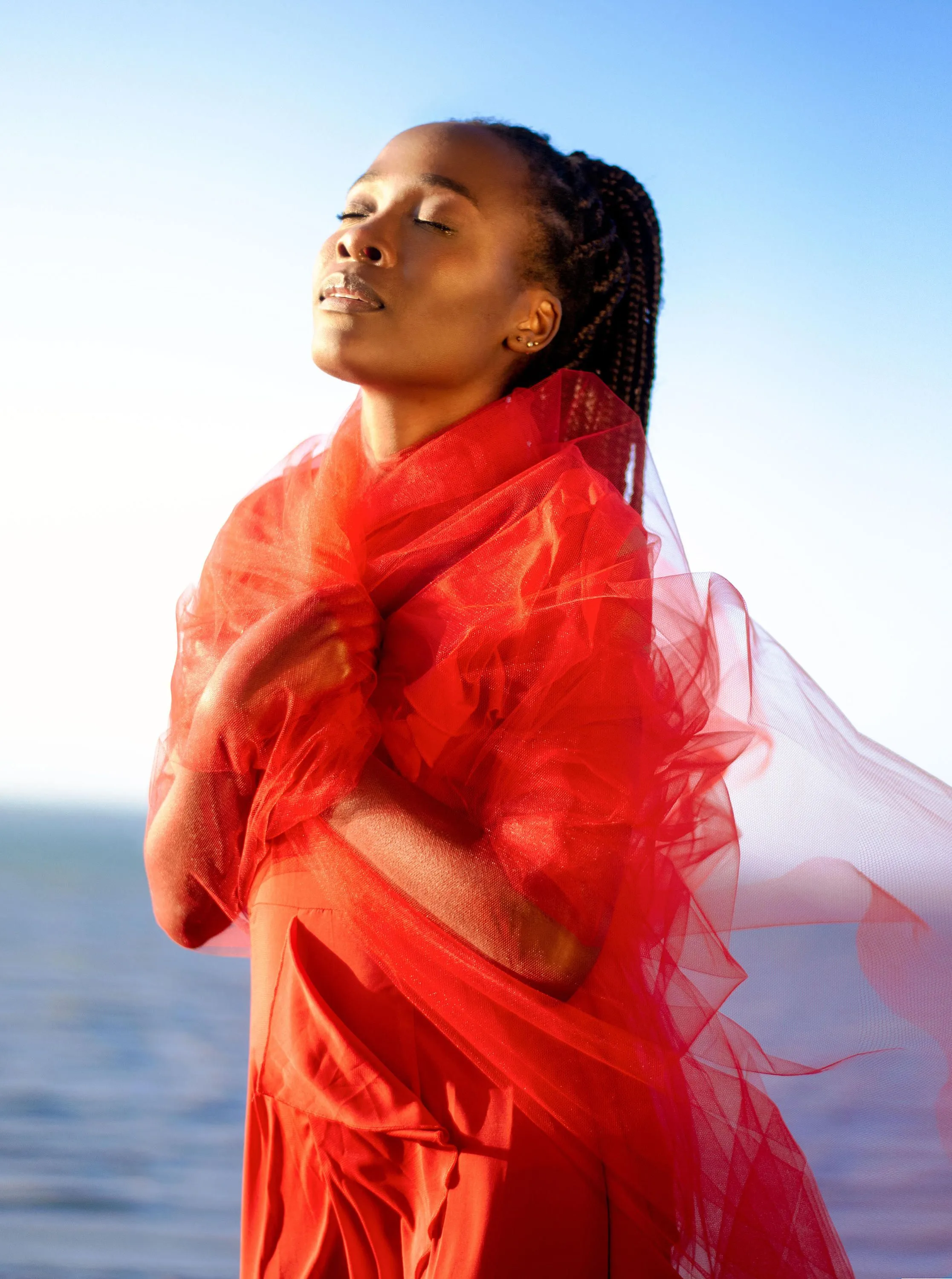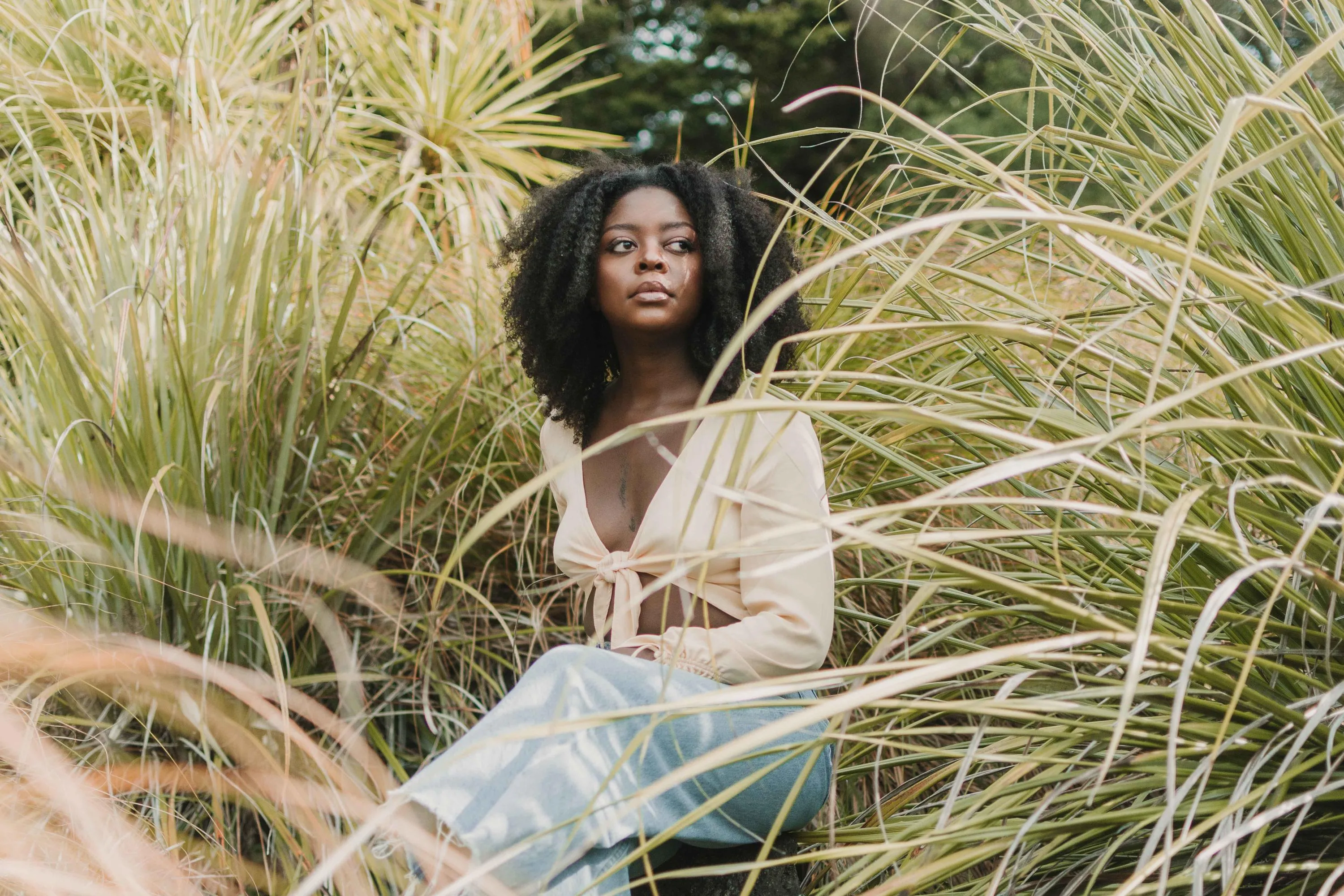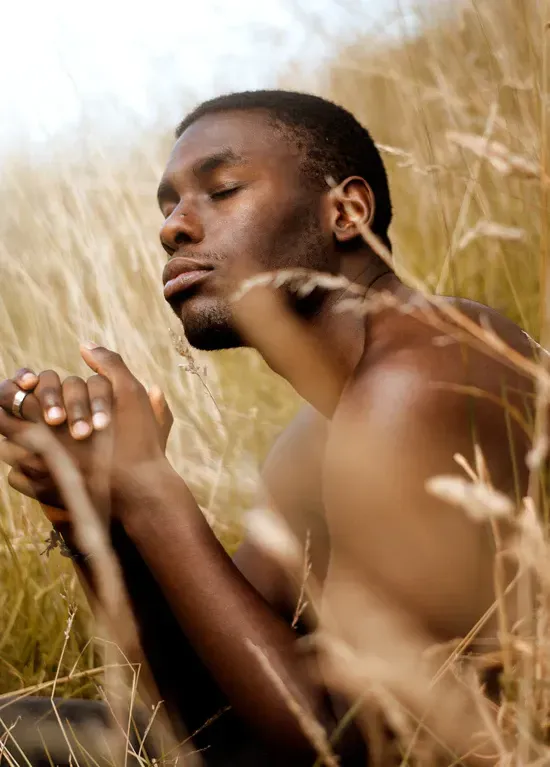Hidden No Longer
Written by
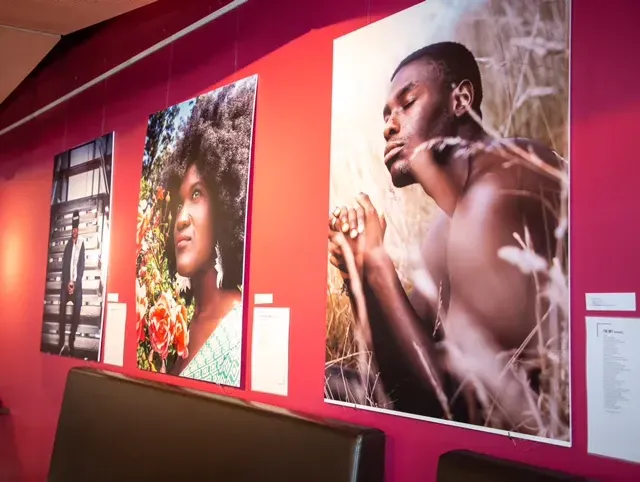
This story was originally published by our friends at Arts Regional Trust.
Curator Dione Joseph-Kouratoras hopes that when people walk into Q Theatre and see Untold Secrets: Hidden Gifts of Our Ancestors, the latest exhibition by Black Creatives Aotearoa “that they look at the walls and realise that the faces they see are the faces of everyday New Zealanders.”
Black Creatives Aotearoa (BCA) was established by Dione in 2018 after she saw a “genuine need in and amongst our community to support New Zealanders of African and Caribbean descent in the arts.” Because Dione has been a practicing artist, writer and director for over a decade she was the go-to person for people in the community. Initially, she began by establishing a Facebook group to share notices quickly and create a sense of camaraderie amongst black creatives. “It grew because I didn’t limit it to specific creative practices - we have hair braiders, restaurateurs, MCs, models, photographers and more.”
Organic and collaborative heart beat
Increasing the visibility of and access to Black creatives was the impetus for the creation of this group. “Visibility hasn’t been there and that’s the challenge” says Dione. “Because diversity often means Māori, Pacific and Asian it drops out Latin Americans, Middle Easterners, Africans and others.”
“Black Creatives Aotearoa is a safe space for people who have any kind of Black whakapapa and a creative practice” Dione continues. “We’re very inclusive. We have Black-Māori, Black-Pacifica, mixed race as well as folks who are born here, migrated here or from former refugee backgrounds.”
A commitment to inclusion and diversity led to BCA growing quickly and the sharing of ideas and opportunities began to flow freely. This community group approach shaped the exhibition process, which has at its core an “organic and collaborative heart.”
After putting the call out on Facebook, Dione found herself with 9 models, 9 poets and 3 photographers keen to create an exhibition merging respective mediums. “This juxtaposition and collaboration came from a desire to whakamana our community” says Dione.
Connecting to ancestors and culture
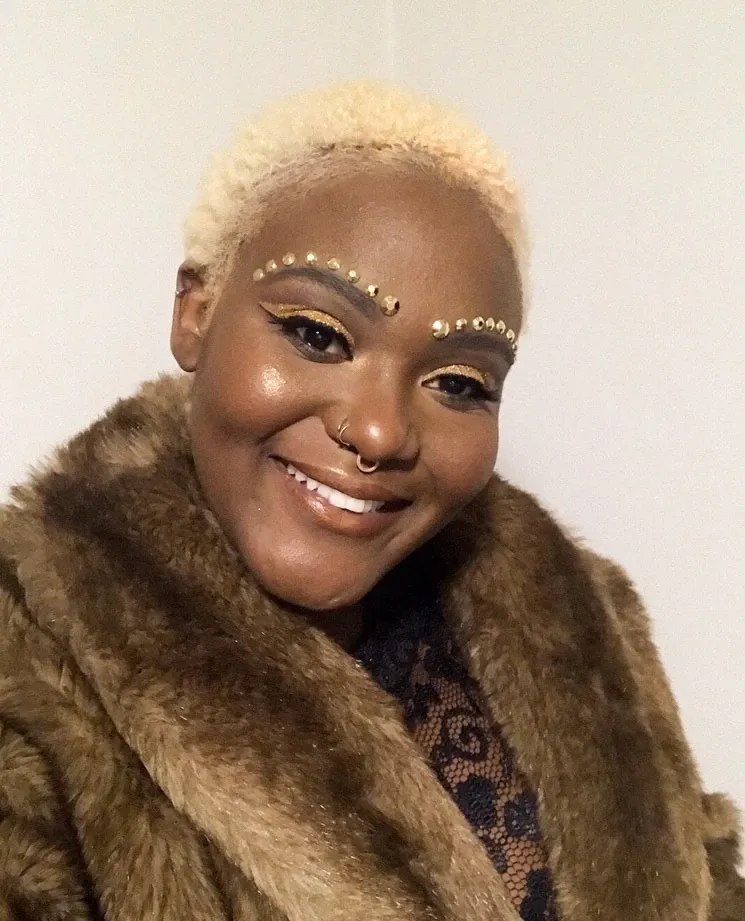
Tarisai Tomu (supplied)
“We wanted it to be about things that are not visible; we chose ‘untold secrets’ because we often don’t get a chance to be voiced and it’s broad enough for the creatives to interpret the theme in their own way.”
The title of the exhibition, Untold Secrets: Hidden Gifts of Our Ancestors was the result of the various ideas shared amongst the group. “It’s why the title is so long” Dione laughs. “But people wanted to talk about ancestors, elevating our people and gifts - we didn’t want it to be a victim narrative.
“We wanted it to be about things that are not visible; we chose ‘untold secrets’ because we often don’t get a chance to be voiced and it’s broad enough for the creatives to interpret the theme in their own way.”
For Tarisai Tomu, her piece focused on her ancestors speaking to and empowering her. Remarkably, it is the very first poem she has ever written. “People told me that I wrote really well, but I never took them seriously” she says. “Growing up, I had a lot of self-doubt and this poem is about getting over my imposter syndrome. The fact I wrote that piece and put it out was huge for me. I was sharing a really personal part of myself with the world that made me vulnerable and uncomfortable but I’m glad I did it.”
For photographer Diana Simumpande, responding to the theme was “difficult - I was born in Swaziland and moved to the UK before coming out to New Zealand, so I felt disconnected from my ancestors and culture. It is a question I am trying to answer in my work.”
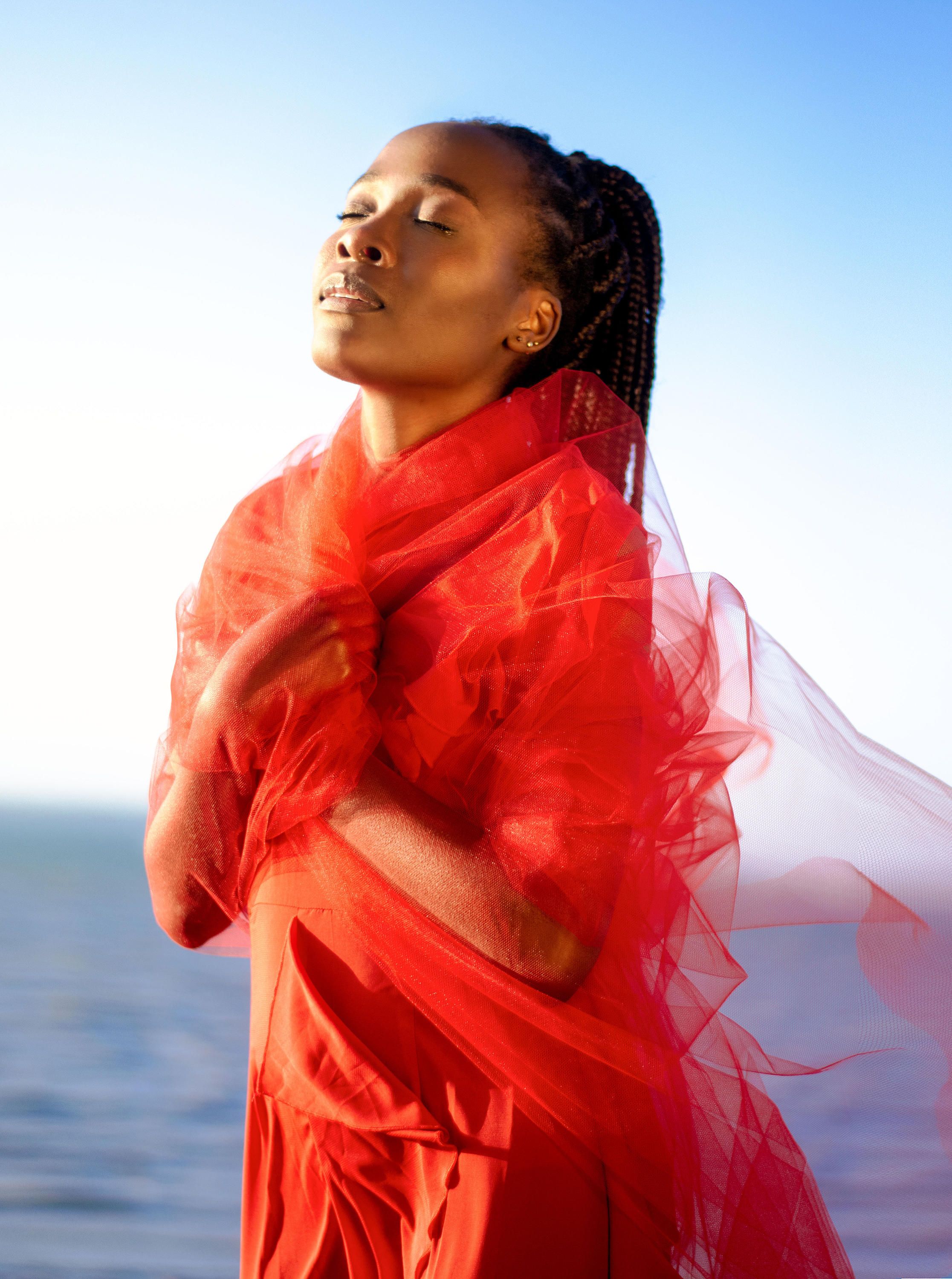
Model Mukukā Hope Musowa. Photo: Diana Simumpande
She managed to break through this initial block through collaborating with her models. “There’s a line by Maya Angelou that ‘we are our ancestors dreams’ who fought so that we could have the freedom to share our gifts and be who we are creatively and freely today” says Diana. “So I asked each of the models what they thought each of their gifts from their ancestors were...it was interesting for me to see how other people interpreted it because it's a question I couldn’t really answer myself.” Model Timothy Tawanda
Itayi worked with Diana. For Timothy, he related to the theme by “being just another person of colour trying to be seen and heard by his own people.”
Enhancing wellbeing and belonging
For each of the creatives, their involvement in the exhibition - and creative pursuits in general - has a positive impact on their wellbeing. “On opening night, audience members and artists were invited to write notes about the value of the exhibition” says Dione. “One of them read ‘I feel seen, I feel heard. For the first time in my life I feel I belong.’ For our artists the value of having a platform, exposure and being recognised as an artist is excellent for people’s mental health, community health and the fabric of society."
“The value is different for each one but the collective value is a declaration that we are here and we can make change. Art enables us to survive challenges living in a very dystopian world...it is a platform for healing; when artists create work we are involved in a process that responds to our different experiences and that also includes traumas, it can have lasting change for everyone involved” says Dione.
“Seeing a room of African people was important too. Growing up in New Zealand, I was rarely in a room where people looked like me”
“The arts are my livelihood and who I am. I have to be creating and doing things that feed my soul all the time or I don’t function properly” says Tarisai. “We create all the beauty in the world - otherwise it’s a place where people are miserable. Art is important for joy, happiness, love - all the most important things” she says.
For Timothy, the exhibition impacts wellbeing because there is a “reassurance that everyone is welcome, able to create and showcase whatever art they want to express - and hopefully we can pave the way for future events.”
Diana found empowerment in her involvement with Untold Secrets. “I was feeling a bit low prior to being involved. I hadn’t done anything by myself in such a long time and BCA allowed me to use my own voice and explore things on my own.
“Seeing a room of African people was important too. Growing up in New Zealand, I was rarely in a room where people looked like me” Diana remarks. “It wasn’t until I was in that situation that I realised how important and empowering that was for me...it also helped to highlight that there is not only one way to be black” she reflects.
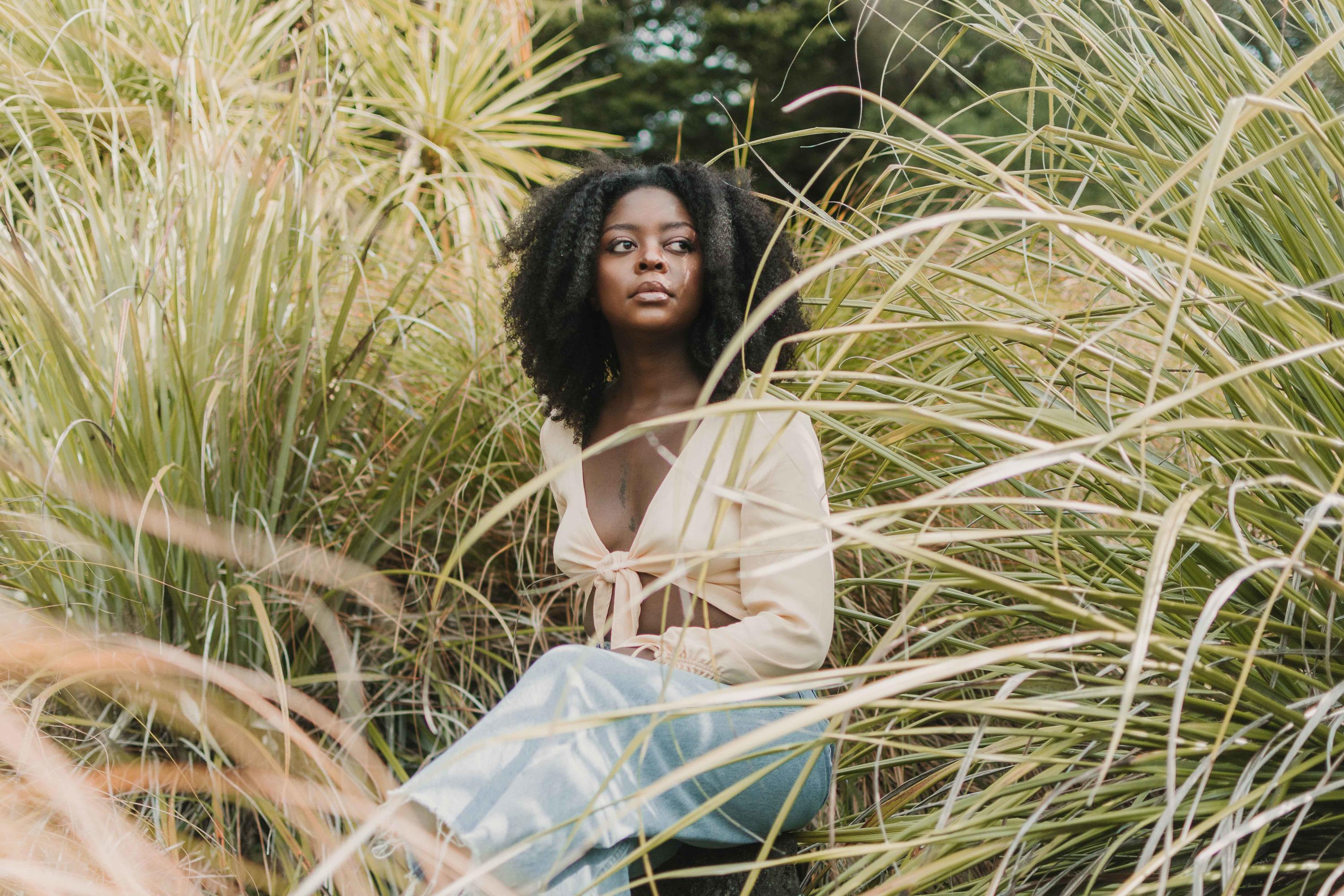
Diana Simumpande (supplied)
“I feel that representation wise, every time you see black people in the media it's always a gangster or a slave or a prostitute. The news is always bad and you don’t get to see a lot of examples in the creative arts. I feel like when you can’t see yourself there, you don't know what you can be. Seeing is believing and when all you’re seeing are negative representations of yourself, then that’s all you feel you can be and that certain things aren’t for you.”
Call for diversity, representation and support
Considering the future of the arts in Aotearoa, they are united in the need for further diversity within the sector. “Photography especially is a white, male dominated industry” observes Diana. “When you’re only seeing the world or New Zealand through that lens, it gives you a very warped perspective. I feel like the more diverse New Zealand grows, there are many more stories to tell. It’s even more powerful when it’s through the voices the people are talking about...only then are we going to start seeing something completely different.”
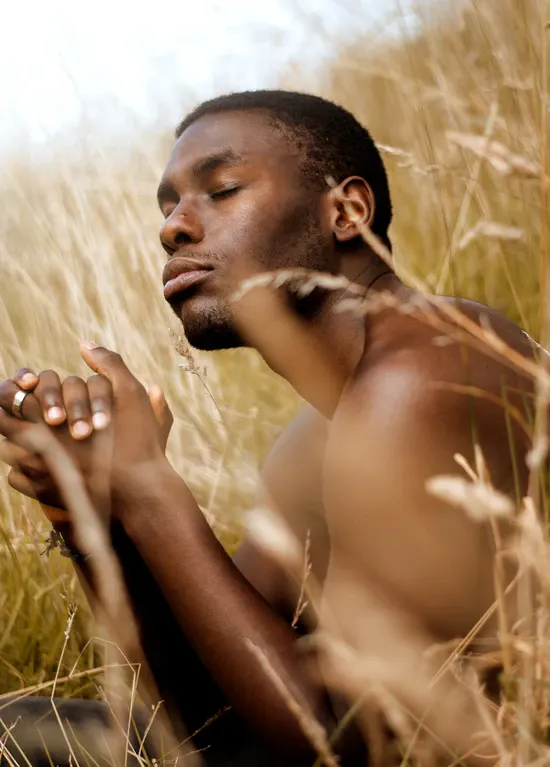
Model Timothy Tawanda Itayi. Photo: Diana Simumpande
“I grew up definitely yearning for an arts program for us black people” says Timothy. “I do wish we could create an area like a studio perhaps where our BCA members can come and make stuff - whatever it is, from woodwork to sculpting. There should be no limit to what we can achieve creatively.”
“I hope more people profile the little people, not just those in the mainstream” Tarasai agrees. “There are so many people doing their own thing but not given the same platform...the art scene in New Zealand is always the same people.”
Art enthusiasts can support in lots of different ways, “it doesn’t have to be funding - it could be as simple as resharing some cool art. [Overall] we are getting there slowly, but there is so far to go.”
“There needs to be a recognition of different differences of artists” Dione declares. “I don’t think it’s helpful where we fall into systems where you have to wait your turn - I understand where those statements come from, but they don’t uplift every member of the community.
”I hope that a little kid seeing this who might be feeling the way I did, will feel less alone”
“Māori are tangata whenua - they’re not part of the diversity quota” she says. “Diversity shouldn’t mean Māori, Pacific, Asian. Because Māori are tangata whenua, we exist in relation to them as tauiwi.
“How we create these inclusive collaborative relationships between tangata whenua and everyone else is essential work,” Dione asserts. “Because when we respect and uphold those values then we create pathways for our ancestors, our narratives, and our stories to have meaningful conversations with each other.”
This call for active representation begins with Untold Secrets.
”I hope that a little kid seeing this who might be feeling the way I did, will feel less alone” says Tarasai. “ That they begin to understand that it’s okay to feel that way it’s okay to pave your own way and be who you want to be - it took me so long to give myself permission, and I feel freer.”
“I hope that the audience realise that there is more than one way to be Black” says Diana. “And that they get a new perspective of what BCA members are capable of in the arts” adds Timothy.
“I’d love people to engage with the words and connect with the individual stories, their history, their ancestors and realise that they are speaking from places that are on this whenua” enthuses Dione. “I’d love for people to understand that the conversation is so much better when the circle is bigger. And that when we are actively engaged in recognising the different differences that exist amongst us, we are in a far better position to create a society that actually reflects the values we aspire to.”
Untold Secrets: Hidden Gifts of Our Ancestors runs until Sunday 5 April 2020 at Q Theatre. For more information, head to www.blackcreativesaotearoa.com
